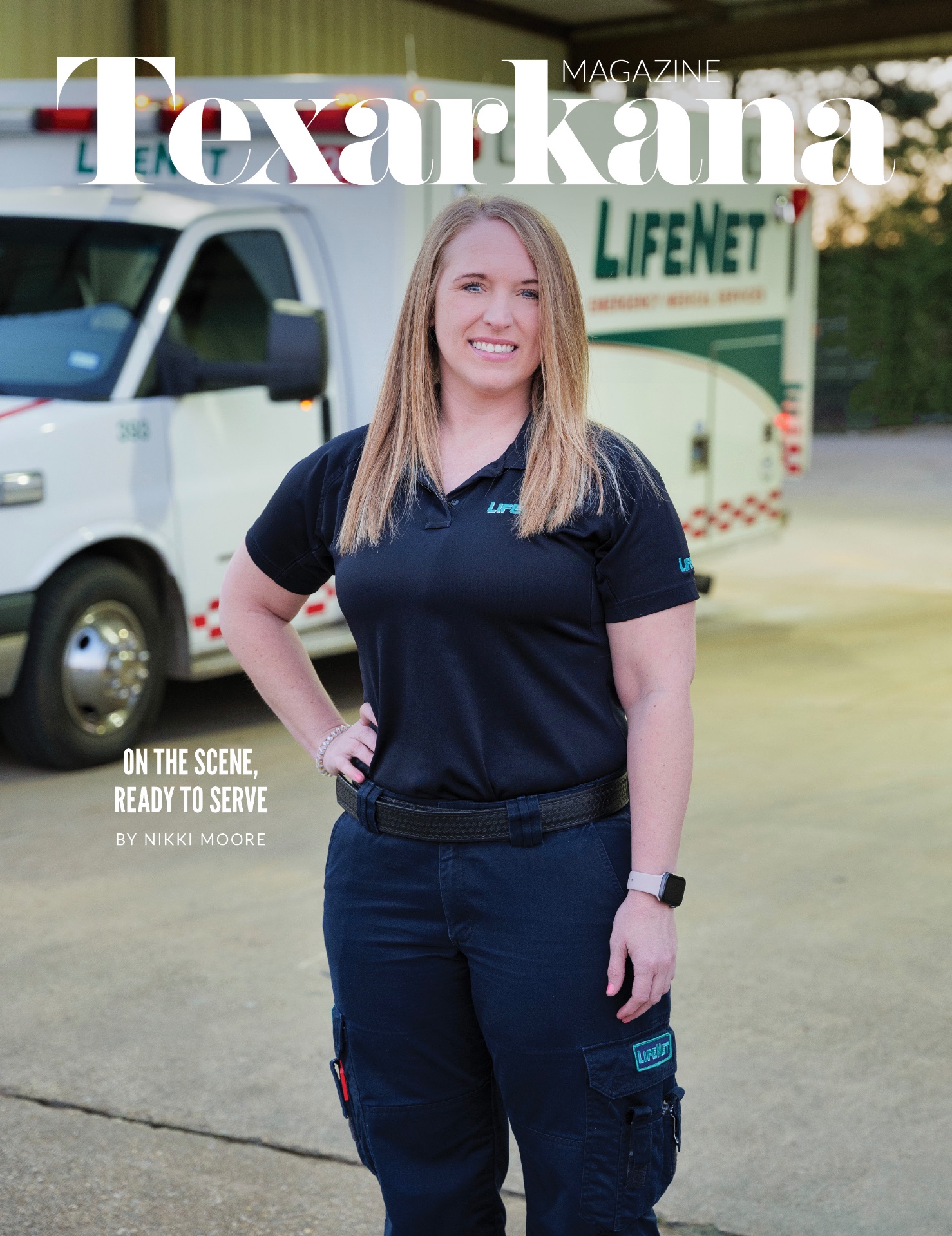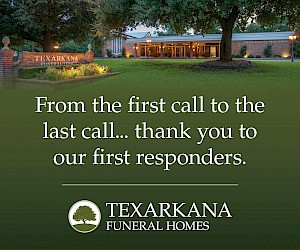On the Scene, Ready to Serve

A child or adult in cardiac arrest, respiratory distress, with a fractured hip, brain bleed, motor vehicle accident, stroke, seizure or needing lift assist are just a few of the things an Emergency Medical Services (EMS) professional may encounter in their day.
We work in teams, and our ambulances are staffed to the advanced life support (ALS) level. This means every ambulance has an Emergency Medical Technician (EMT) and a paramedic on board. After clocking in, my partner and I start our day preparing our ambulance for what the day may hold. Our first call may come within a few minutes of clocking in, or we may have a bit of time to wait until we hear the tones. “Medic 24, please respond to 123 Smith Street in Texarkana for a 65-year-old in sudden cardiac arrest,” we hear dispatch say, kicking our education, training and skills to the forefront of our minds.
Once on scene, we unload our cot and the equipment we need for the call before quickly heading to the patient’s side. Often, area first responders are already on the scene treating the patient when we arrive. Our assessment begins as we speak with the patient, family members and first responders. The patient’s age, size, medical history, current medications, allergies and the location the patient was found, all play a role in the aid we will render on scene. Depending on the nature and severity of the patient’s illness or injury, or the number of patients involved, we may request assistance from another ambulance crew or decide to fly a patient via helicopter instead of transporting via ground ambulance.
From the first day of EMT school, we are taught about scene safety. While some scenes are controlled environments, others are not. All scenes require us to be aware of our surroundings. We might respond to a call where we must stage for police to clear the scene, a call on the highway where traffic continues to pass by as we treat the patient, or a home where we don’t know the nature or location of the other occupants in the house.

Our shifts are 9-hours, 12-hours or 24-hours, but sometimes they run longer. We all know if a 9-1-1 call comes in 15-minutes before we are scheduled to get off, and we are the closest unit, it’s our job to respond. When we became EMTs and paramedics, we signed up to help people. EMS is always open. We workdays, nights, weekends, and holidays because injuries and illnesses don’t look at a clock or a calendar before happening.
To keep our EMT or paramedic certifications, we are required to take continuing education classes outside of our normal work schedule. We also attend quarterly team meetings and skills trainings to ensure we are up to date on protocols and are proficient in providing the care needed to the patients who rely on us in the community.
I am a single momma. For the last 13 years, my now 17-year-old son has endured my not so normal work schedule. I have missed birthdays, holidays, ball games and school awards. It’s a sacrifice so many in EMS make daily because we love what we do. My son knows I would be at each of those events if I hadn’t picked a career with shifts that call me away. We have still found a way to build a strong home life, and I know when I get there after each shift, the sacrifices we have both made to allow me to work in EMS are worth it.
Outside of my workday, I have a longer commute than most to my “mobile office.” During my hour commute each way, I spend much of my time talking with God. I know without Him, I could not do my job. My faith in Him strengthens with each shift because I know He protected us while we traveled at accelerated speeds and worked in trying environments, and He ensured we were safe at each scene. He guides me through the tough things I have seen and ensures I get to come home safe at the end of every shift. When I’m not talking with Him, I’m singing loudly, and very much off key, to the songs that make my soul happy. Sometimes, I spend the drive home in complete silence knowing God knows exactly what I want to say to Him, even when I am unable to find the words.
I know each shift will put me in unique circumstances. I may never understand why the terrible things happen that require our response, but I will always be thankful and blessed that I get to serve the community. Every call I have made throughout my career, every partner I have worked with, and every patient I have encountered along the way has helped shape me into the provider I am today.

